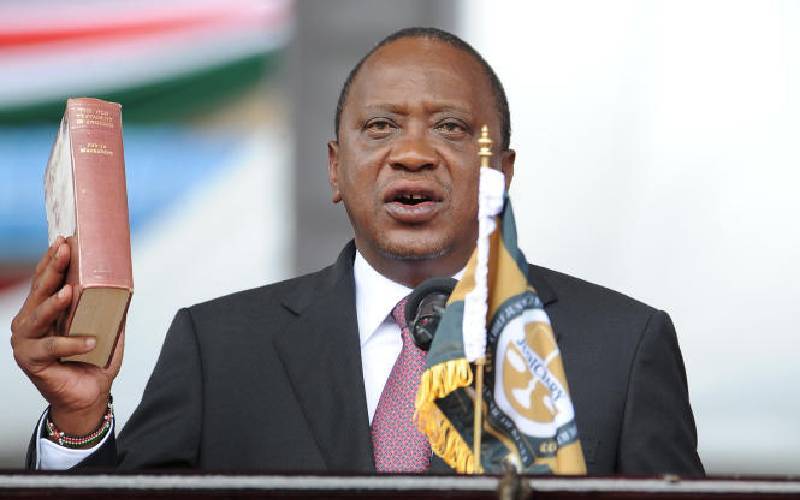×
The Standard e-Paper
Smart Minds Choose Us

President Uhuru Kenyatta when he took an oath of office as President of the Republic of Kenya for the second term, at Kasarani Stadium. [File]
President Uhuru Kenyatta is expected to hand over power to his successor as prescribed by the law in about seven months.